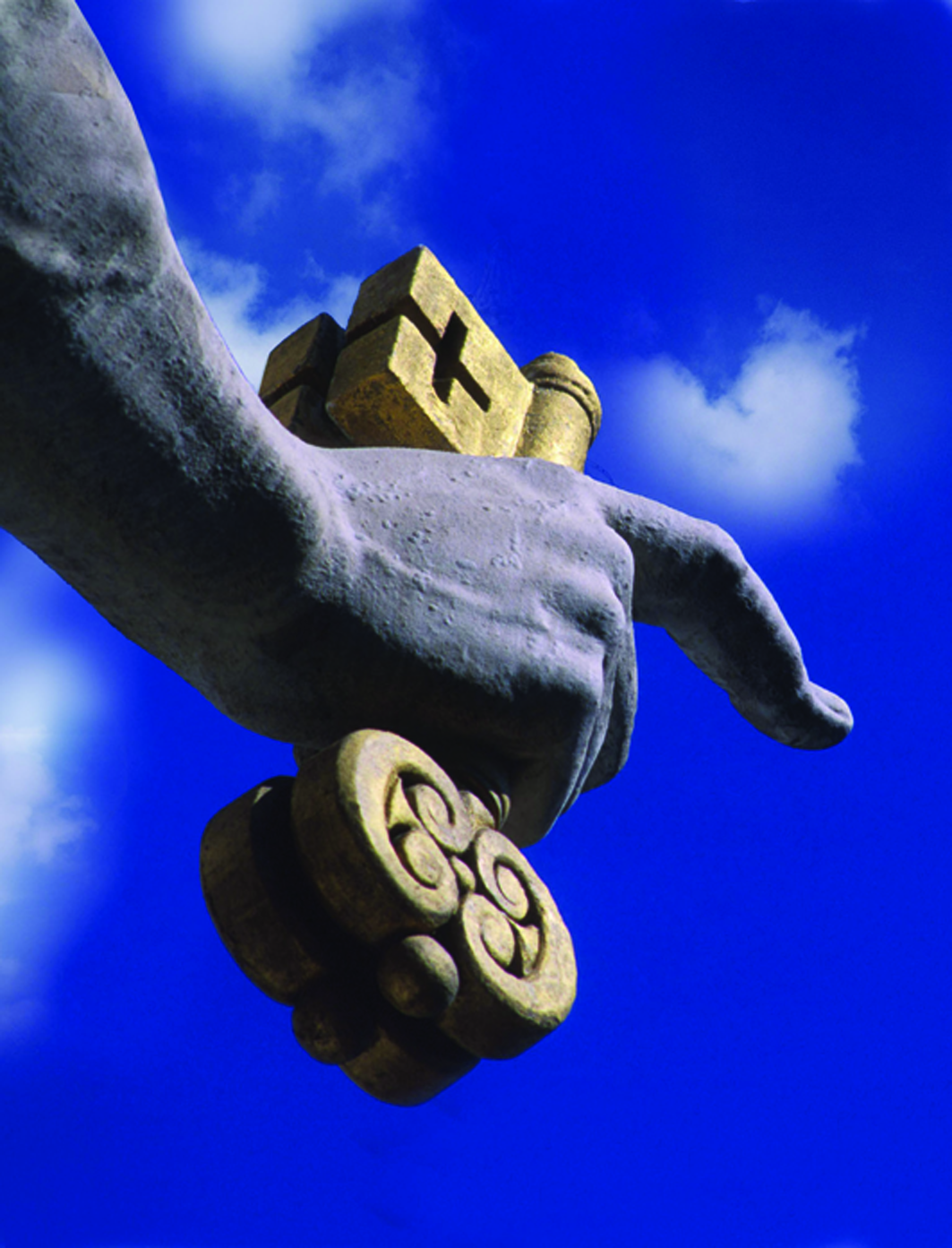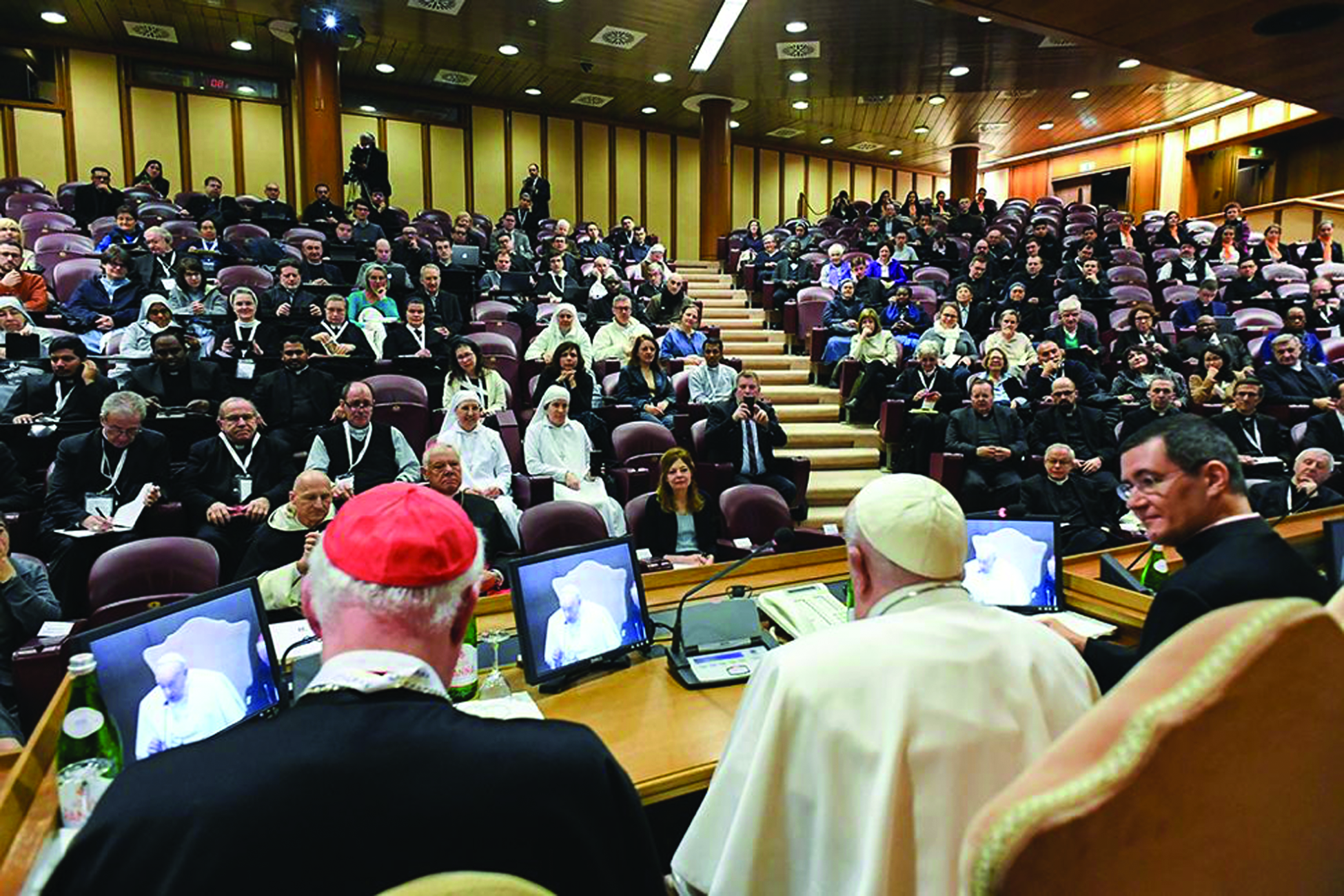Nowadays having a personal or institutional account on Twitter or Facebook has become a kind of fashion. But sometimes it is hard to know whether the profile is authentic or not.
A year ago on May 4, on the occasion of the swearing-in of the Pontificial Swiss Guard, the Guard launched its first official Facebook page under the Italian name Guardia Svizzera Pontificia. The very first project was the live streaming of the swearing-in from CTV (Centro Televisivo Vaticano – Vatican Broadcasting / Television Center) in 2012, repeated also this year. Fr. Frederico Lombardi answered the request: “Ben volentieri. Let’s do this!”
“And it worked,” says Sergeant Erwin Niederberger, the initiator and manager of the project.
Today the page regularly has more than 10,000 visitors a day, and the Corps’ presence on Facebook may help to attract new recruits to the Corps.
“I was always a great fan of Facebook,” Niederberger explains. “If we are looking for young people, we have to go where they are. We have to find them. On the Internet they are present on Facebook. At the beginning we weren’t sure. The commandant always agreed. We asked for advice in Switzerland on what to do. They answered that we should try. There isn’t any guarantee how it might be fruitful.
“A year later, I can say that it was the right decision. There are a lot of people who see the photos and who leave comments, 90% of them positive. Today there are also many fans and friends who are not Catholic.”
The Swiss Guard’s Facebook page is not focused only on daily news from their barracks, but also brings Vatican City and the Pope closer to people.
“After Holy Week and Christmas when around 350,000 people visited the page, the event which attracted the greatest attention was the resignation and farewell of Pope Benedict, the period of the sede vacante and the Conclave with the election of the new Pope. On average, there are 150,000 people who visit the account daily, a decent number for a middle-sized enterprise.”
Especially on the Pope’s farewell day, the Guard was at the center of attention.
“When we only think about the closure of the big main wooden door of the Palace at Castel Gandolfo,” he said, “I watched it live on CNN from my room in the Vatican. We were surprised by the attention paid to the closure, but of course it was the only visible moment.
“We try to post a story every day. We put up not only our photos, but also photos of the Pope. One can see that there is interest.”
The information and texts on the page are mainly the four languages of Switzerland: German, French, Italian and Romansh. Not in English.
“But we do post many articles and information also in English: information on what the Corps does, some history, some information on the service and recruitment. But our hope is to attract young Swiss for the Guard,” the sergeant said.
The first Facebook team was composed of Sgt. Erwin Neiderberger for German language, Sebastian Roulin for French, Tommaso Perugini for Italian and Duri Coray for Romansh.
The page’s visitors are truly international, even in the languages hard to understand for Europeans, like Korean. Among Facebook friends of the Swiss Guard there are representatives of every age. “It is interesting how it is organized and the fact that there are more men than women,” Niederberger noted. “Also when it comes to age, there are more people between 18-25 and 25-35, simply those who spend more time at the computer. Of course, it is also interesting where they come from. Switzerland is in third place after the United States and Brazil. When it comes to the cities: Rome, Zurich and Lugano. The languages: English, Italian and German.”
Fans and friends of the Swiss Guard send photos or make donations. For example, one sent a photo from Colombia where there is a tradition that young boys dress as the Swiss Guards. The photos come from both amateurs and professionals.
“The biggest fear was possible unpleasant comments, especially regarding the person of the Pope,” he said. “Of course, on Facebook everyone can write what he/she wants. From time to time there are some comments that are less pleasant. As administrator, I can see them and also delete them. If someone continues to post them, that person is blocked from the account. There aren’t many improper comments. All in all, it has been a very positive experience. There are many people who send us Easter wishes and thank us for our service. You can see that there is a lot of good will, a kind of virtual appreciation.
“I must also say that this experience doesn’t give us too much additional work. I check the site daily, even if I don’t understand languages like Korean. I hope the comments are nice. We also try to post videos. They are always very welcomed and visited, but obviously they require too much work, even though it would be nice to have a video every day. A photo is usually reposted by about 10,000 people, while a video by between 90,000 and 150,000.
“Why Facebook? I don’t think Twitter would be interesting for us, because on Facebook you can use photos. Text alone is less interesting.
“It is possible to post text, but you can see that almost nobody reads the whole text, even if it is interesting.
“For example, I posted an article on our uniform, that is not that of Michelangelo, though everybody thinks it was Michelangelo who designed it. There was some interest.
“But one can see that there is interest, especially in the videos or photos. For something visible. I think that people are looking for beautiful photos. For that reason, it is a simple task to post interesting things about the Swiss Guard. We can always find a photo. If I don’t have a photo, I can easily find something on the internet.”






Facebook Comments